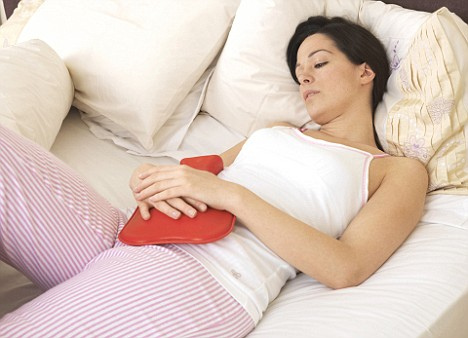
What Happens During A Period?
During menstruation, the lining of the uterus is expelled through the cervix — the small opening between the womb and the vagina. The average period lasts between three and five days, and the first day of your menstruation marks the beginning of a new menstrual cycle. Menstruating regularly is a sign that a woman's reproductive system is working well, but it can be an unpleasant experience during which the woman is crampy and emotional. Normal menstrual cycles can last anywhere between 21 and 35 days in adults, and 21 to 45 days in young girls.
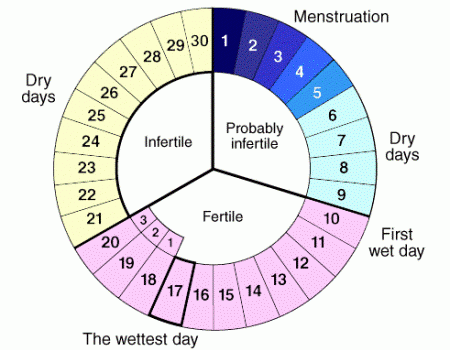
What Is The Menstrual Cycle?
A menstrual cycle lasts from the first day of one period to the day before the next one starts. During one cycle, a woman's body prepares for pregnancy by creating a thick lining in the uterus, and releasing an egg during ovulation. The menstrual cycle is divided into three distinct phases, which are all governed by hormones. If fertilization does not occur during a cycle, the body breaks the uterine lining down again during menstruation, and the whole process starts over again. The average woman experiences around 500 menstrual periods during her life time. That is a lot of chances to get pregnant!
- Important notification about information and brand names used in this slideshow!
- Photo courtesy by www.healthyoncare.com on Google : www.google.com/imgres?um=1&sa=N&hl=en&biw=1920&bih=979&tbm=isch&tbnid=B32Nixy7wLFX_M:&imgrefurl=www.healthyoncare.com/what-are-the-causes-of-irregular-menstrual-cycles/.html&docid=V1DeOSmLO
- en.wikipedia.org/wiki/Menstrual_cycle

How To Use Tampons And Saintary Pads
There are two main ways to collect menstrual fluids while you are menstruating: tampons and sanitary pads. Sanitary pads are easiest to use, and can be a great place to start for a young teen who recently started getting periods. All you need to do is make sure you regularly change your pad. Tampons have a slight learning curve. It is important to be relaxed while you insert a tampon into your vagina, and you will want to experiment to find the most comfortable way for you. Some women stand up, with one leg on the toilet seat, to insert tampons. It is dangerous to leave tampons in place for too long, so remember to change your tampon every few hours.

The Three Phases Of Your Menstrual Cycle
The menstrual cycle consists of three phases: the follicular phase, ovulation, and the luteal phase. During the luteal phase, a thick lining builds up inside the uterus and the ovaries prepare to release a single mature egg. Ovulation is when that egg appears. An egg remains viable for up to 24 hours after it is expelled from the ovary, and the luteal phase commences after that time is up. If an egg was fertilized, it will travel down to the uterus and implant within the next seven to 10 days. If not, the egg is reabsorbed by the body and a new menstrual cycle will begin.
- Important notification about information and brand names used in this slideshow!
- Photo courtesy by kdavis66 on Photobucket : media.photobucket.com/user/kdavis66/media/african-american-women-talking.jpg.html?filters[term]=women&filters[primary]=images&filters[secondary]=videos&sort=1&o=7
- en.wikipedia.org/wiki/Menstrual_cycle
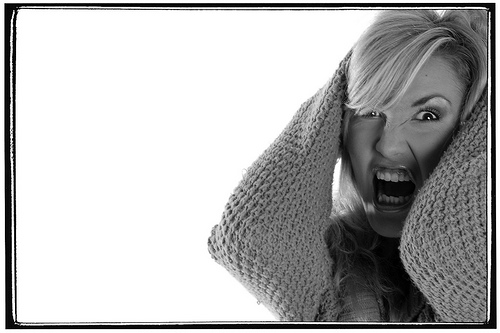
PMS And Mood Swings: Why Do They Happen?
Premenstrual Syndrome is the name given to a range of symptoms that women can experience in the days leading up to their period, and during their period. Breast tenderness, impurities of the facial skin, fatigue and bloating are common physical symptoms. Nothing quite compares to the mood changes some women experience during parts of the luteal phase of their cycle, though! Mood swings can include being very emotional and aggression. PMS is not, as some people believe "an excuse". It is a real medical phenomenon that is thought to be caused by the drop in estrogen and the rise in progesterone.
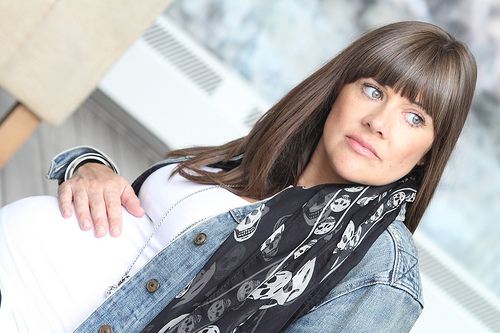
You Can Get Pregnant During Your Period
Many women wonder if they can get pregnant while they are experiencing menstrual bleeding. The short answer is that it is highly unlikely to happen, but not impossible. Sperm can survive inside a woman's reproductive organs for quite a while. Research shows that sperm survives for five days on average, but that they can hold on for as long as seven days. Some women do ovulate within seven days of the last few days of their menstrual bleeding. Having unprotected sex during a period is therefore not a reliable contraceptive tactic.
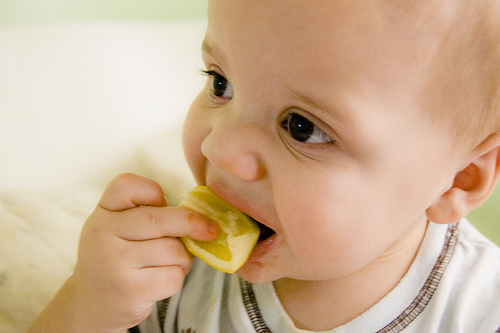
The Most Fertile Time Of The Cycle Is...
The fertile window starts around seven days after a woman's period ended, and stops after she ovulates. The day before a woman's egg is released during ovulation is the single most fertile day of the menstrual cycle. Using an ovulation-tracking method like ovulation tests or fertility charting can make the woman aware of her ovulation date. Being sure when you ovulate can be very helpful, but it is not necessary if you want to get pregnant. Couples who are trying to conceive maximize their chances of achieving pregnancy if they have intercourse every day during the whole follicular phase of the cycle.
- Important notification about information and brand names used in this slideshow!
- Photo courtesy by Nadia Phaneuf on Flickr : www.flickr.com/photos/nadiaphaneuf/3816549890/
- en.wikipedia.org/wiki/Menstrual_cycle

Ovulation - The Most Important Event During A Menstrual Cycle
It is easy to think of menstrual periods as the most important part of the cycle, because it is definitely the most obvious. It is good to keep in mind that enabling pregnancy is the whole point of menstrual cycles. Menstruation only happens so that the body can prepare for the next follicular phase, during which the body prepares for ovulation and possibly the fertilization of that month's egg. Women who are trying to have a baby boost their chances of pregnancy if they know when they ovulate, while those who want to prevent conception are more likely to be successful if they are aware of their most fertile days.
- Important notification about information and brand names used in this slideshow!
- Photo courtesy of LYDIA and her SALAD DAYS by Flickr : www.flickr.com/photos/himmelundholle/527154570/
- en.wikipedia.org/wiki/Menstrual_cycle
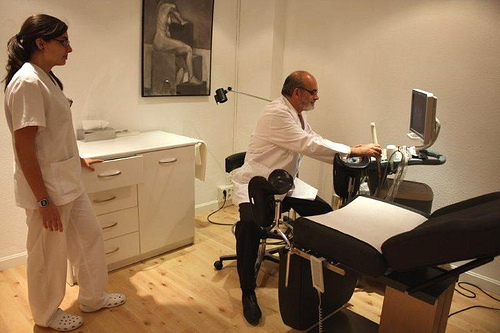
When Should You See A Doctor?
Menstruation, and the duration of menstrual cycles, varies from woman to woman. There is a large range of "normal". So, when should you be concerned enough to pay your doctor a visit for period-related problems? Girls who haven't started menstruating by the time they are 15 should seek medical help, and the same is true for those who didn't start getting periods within three years of breast growth. Women who suddenly don't menstruate any more, or who have irregular cycles after being regular before, should also see a doctor. Pain and heavy periods are another common concern. You may be one of the 20 percent of women who have very heavy and painful periods, a condition known as dysmenorrhea. See your doctor if your period lasts longer than seven days, the pain is bad enough to interrupt your daily activities, or you are worried about very heavy periods.
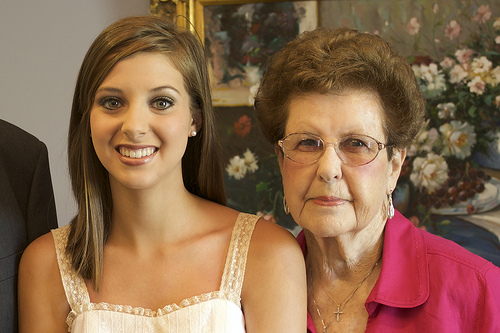
Menstrual Cycles: From Menarche To Menopause
Most teens get their first period between the ages of 10 and 14, but it is possible to start menstruating as young as 8. The first menstruation is called menarche. Teenage menstrual cycles do not always involve ovulation, and are often irregular to start off with. By the time a woman reaches her twenties, her cycle is likely to have picked up a definite rhythm, and she will probably ovulate every month. The menopause marks the end of a woman's reproductive age. It usually kicks in between the ages of 45 and 55. To start with, perimenopausal women will still ovulate on occasion so they will still need to use birth control if they wish to avoid pregnancy.


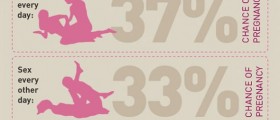
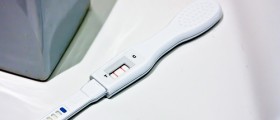










_f_280x120.jpg)










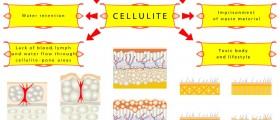
Your thoughts on this
Loading...